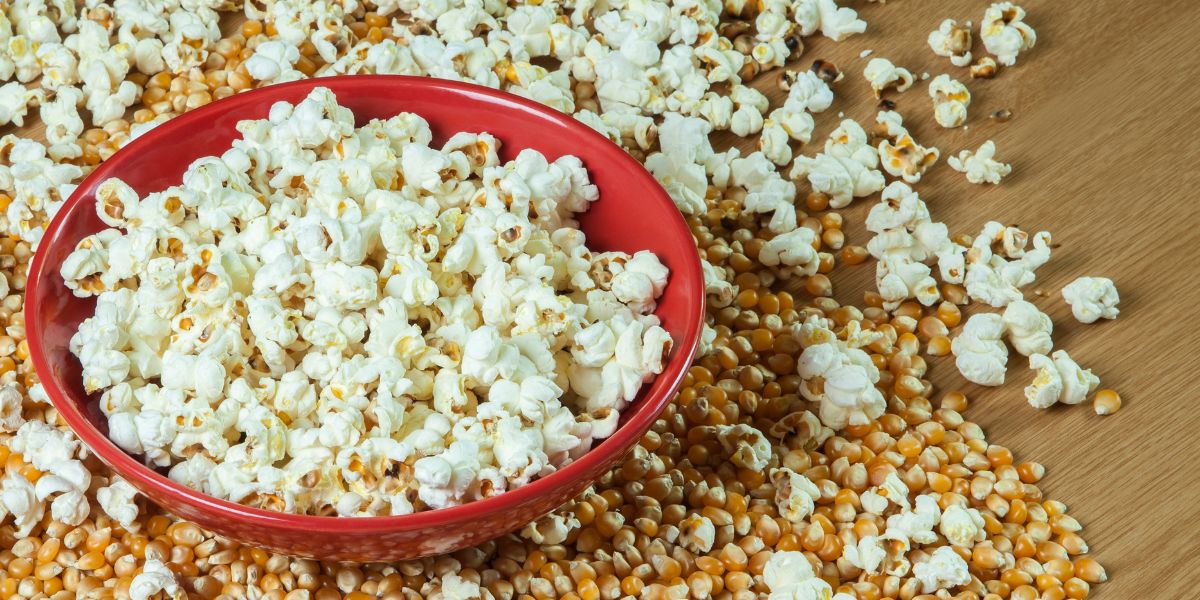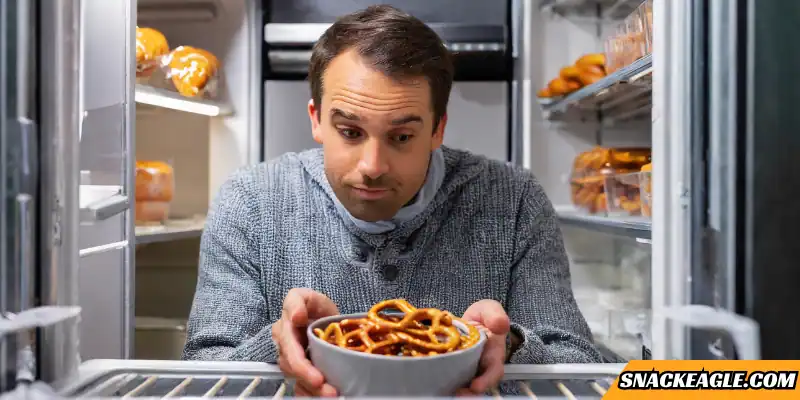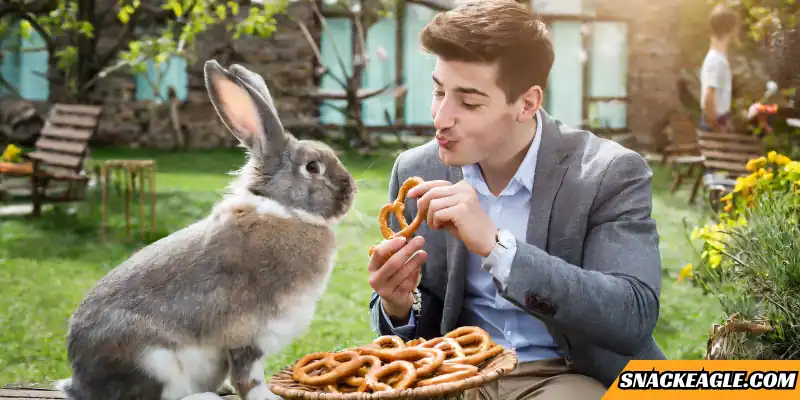If a popcorn kernel doesn’t contain enough water, it won’t pop.
Popcorn is one of the most popular popcorn snacks. Popcorn kernels are often popped in a popcorn maker or microwaved and eaten as-is or with salt and butter. But what about popcorn kernels that don’t pop? Why does this happen, and how can we prevent it? If you’re looking for popcorn answers, keep reading!
It comes down to one simple reason: water.
Popcorn is popcorn because of the moisture content. The popcorn must be about 14% water to pop, but some kernels contain as little as 12%.
When a kernel doesn’t pop, there wasn’t enough water for the popcorn’s starch and protein coatings to expand during popping. Water-soaked popcorn becomes too moist which can also prevent the kernel from popping.
As well as the water content within your kernels, the hull can also affect whether your popcorn kernel will pop. The hull of a popcorn kernel is the crispy outside layer that encases what’s inside.
When heated, it turns into an airtight seal to help contain any water escaping from within (unless there are leaks). At 212 degrees Fahrenheit, water trapped in kernels boils and becomes steam, pushing against the tightened outer shell; as soon as pressure reaches 347 degrees F – POP!
So that’s it. For the popcorn to pop, there needs to be enough water available in a kernel’s starch and protein coatings – without it, they simply won’t expand during popping.
Why do some kernels not pop?
There are several reasons why some popcorn kernels may not pop:
- Incorrect Moisture content: Popcorn kernels contain a small amount of water inside their hulls. If the kernel is too dry, it may not have enough moisture to create the necessary pressure buildup to pop. Conversely, if the kernel is too moist, it may not pop properly.
- Heated to the wrong Temperature: Popcorn kernels require a specific temperature range to pop. If the temperature is too low, the kernel may not pop at all, or it may only partially pop. If the temperature is too high, the kernel may burn before it has a chance to pop.
- Your Kernels are too old: Popcorn kernels can become stale over time, affecting their ability to pop. As kernels age, they lose moisture and become harder, making it more difficult for them to pop.
- Low–Quality Kernels: The quality of the popcorn kernel can also affect its ability to pop. Low-quality kernels may be more likely to have defects or inconsistencies that can prevent them from popping properly.
- Bad Storage: Popcorn kernels should be stored in a cool, dry place to prevent moisture from building up inside the hull. The kernels may not pop properly if they are stored in a humid environment.
Overall, popcorn kernels that do not pop are usually due to one of these factors or a combination of them.
Remember, even under ideal conditions; there will always be a few kernels that don’t pop.
FAQs
Why is my popcorn not popping?
There could be several reasons why your popcorn isn’t popping (see above for the details). One common reason is that the kernels are too old and have lost their moisture. Another reason could be that the pan or pot you’re using is not heated enough.
What can I do if my popcorn isn’t popping?
If your popcorn isn’t popping, try increasing the heat and shaking the pan or pot frequently to prevent burning. You can also try adding a little bit of oil to the kernels to help them pop.
Why do some popcorn kernels remain unpopped?
Some popcorn kernels may remain unpopped because they were not heated evenly or did not have enough moisture. Another reason could be that they were not fresh or had been stored improperly.
How can I prevent unpopped kernels?
To prevent unpopped kernels, make sure to use fresh popcorn kernels and store them in an airtight container. Also, make sure to heat the pan or pot evenly and shake it frequently during cooking.
Can I still eat unpopped kernels?
It is not recommended to eat unpopped kernels as they can be hard and may damage teeth. It is better to discard them and enjoy the fully popped kernels.
How can I tell if popcorn kernels are fresh?
Fresh popcorn kernels should feel dry and have a hard, shiny surface. If they feel soft or have a dull appearance, they may be old or stale.
What is the best way to store popcorn kernels?
Popcorn kernels should be stored in an airtight container at room temperature. Avoid exposing them to moisture or heat, which can cause them to lose their freshness.
Can I use a microwave to pop popcorn?
Yes, microwave popcorn is a popular option for quick and easy popping. However, it’s important to follow the instructions carefully to avoid burning or uneven popping.
Why do some popcorns have a burnt taste?
Why do some popcorns have a burnt taste? A: Popcorn can have a burnt taste if it is heated for too long or at too high a temperature. It can also happen if the oil or butter used for popping is burned.
Check out everything you need to know about popcorn kernels next.
Final thoughts 💭
Popcorn needs enough water inside the kernel to pop! But don’t worry if you have a few unpopped kernels at the bottom of your bowl. That’s perfectly normal!





Leave a Reply